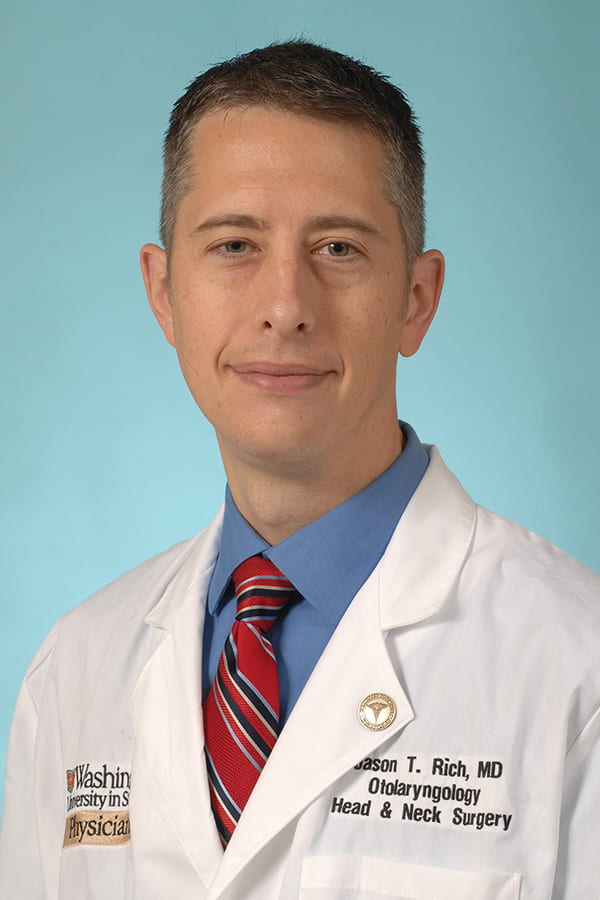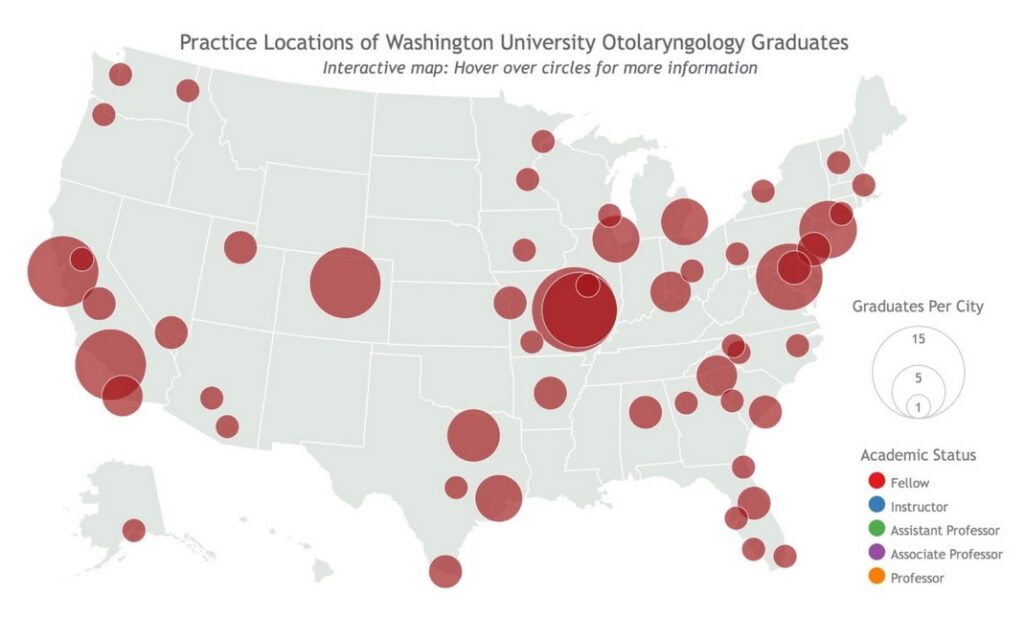This five-year program prepares highly skilled otolaryngologists with mastery in clinical and surgical patient care. In addition, research experience provides exposure to scientific principles of investigation as a foundation to the practice of evidence-based medicine.

Why Washington University?
- Comprehensive clinical training in a department with deep expertise in every subspecialty
- High-volume, cutting-edge clinical care including complex surgeries (free flaps, endoscopic skull base, cochlear implants, and more) in a technology-rich environment
- Multi-disciplinary teams solving difficult, multifaceted treatment decisions
- Well-funded research programs in a variety of areas to address clinical challenges to improve patients’ lives
- State-of-the-art surgical simulation facility, a model for environment for learning with our world-class faculty
- Early autonomy in clinical decision-making with supportive oversight
- Translatable experience in rotations outside of the specialty
- Warm, collegial and inclusive culture
What are our recent graduates doing now?
Program description

Director, Resident Education

- The first year of otolaryngology will include six months of ACGME-approved structured education on non-otolaryngology rotations, including one month of intensive care rotation. The remaining six months are spent on otolaryngology rotations.
- A second year induction course offers comprehensive basic science and introduction to temporal bone, rhinologic, and neck dissection.
- A two-year rotating core curriculum is given by the faculty covering all major topics.
- Additional conferences include: Grand Rounds, Tumor Conference, Otology/Audiology Conference, Journal Club, Facial Plastic Conference, Patient Safety Quality Improvement Conference (Morbidity/Mortality Conference), Research Seminars, and Academic Career Development Conference (ACDC). Each division has its own Journal club as well as department-wide Journal club.
- Career guidance and counseling begins in year one, and and continues throughout residency.
Evaluation
- Established goals and objectives for each level of postgraduate year and a formative and summative evaluation process
- Based on the six ACGME Core Competencies (Milestones)
- Includes narrative rotation evaluations from faculty, staff, and others; review of In-training exam scores, case logs, scholarly activity
Success
- 100% of our graduates are otolaryngology board certified.
- We rank in the 95th percentile for alumni publications, according to Doximity.
- Our alums rank #6 in research output, according to Doximity.
- 40% of our alums are in leadership positions.
- Click the map to see where our alumni are practicing:

